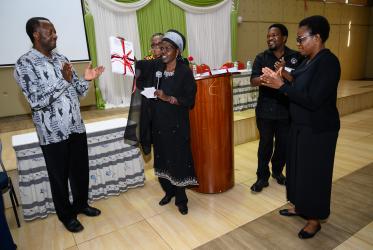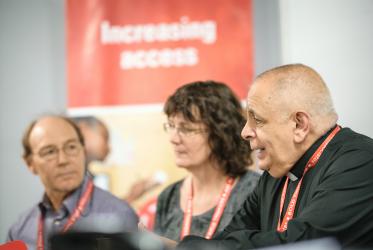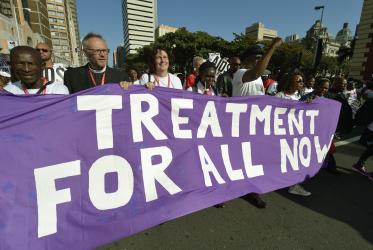Displaying 1 - 20 of 36
01 February 2024
Faith and HIV treatment go hand in hand
06 March 2019
Dr Cecile De Sweemer, the doer of God
30 November 2018
Congolese churches respond to Ebola outbreak
01 June 2018
UN discussion focuses on women, HIV and property rights
21 March 2017
“It’s time to be brave, to form diverse partnerships”
02 March 2017
Zambia: “On HIV, we do not compete. We work together.”
20 October 2016
Kenya: Voice of faith communities crucial in overcoming HIV
14 October 2016
Honest talk blossoms between youth, theologians in Cote d’Ivoire
14 September 2016














